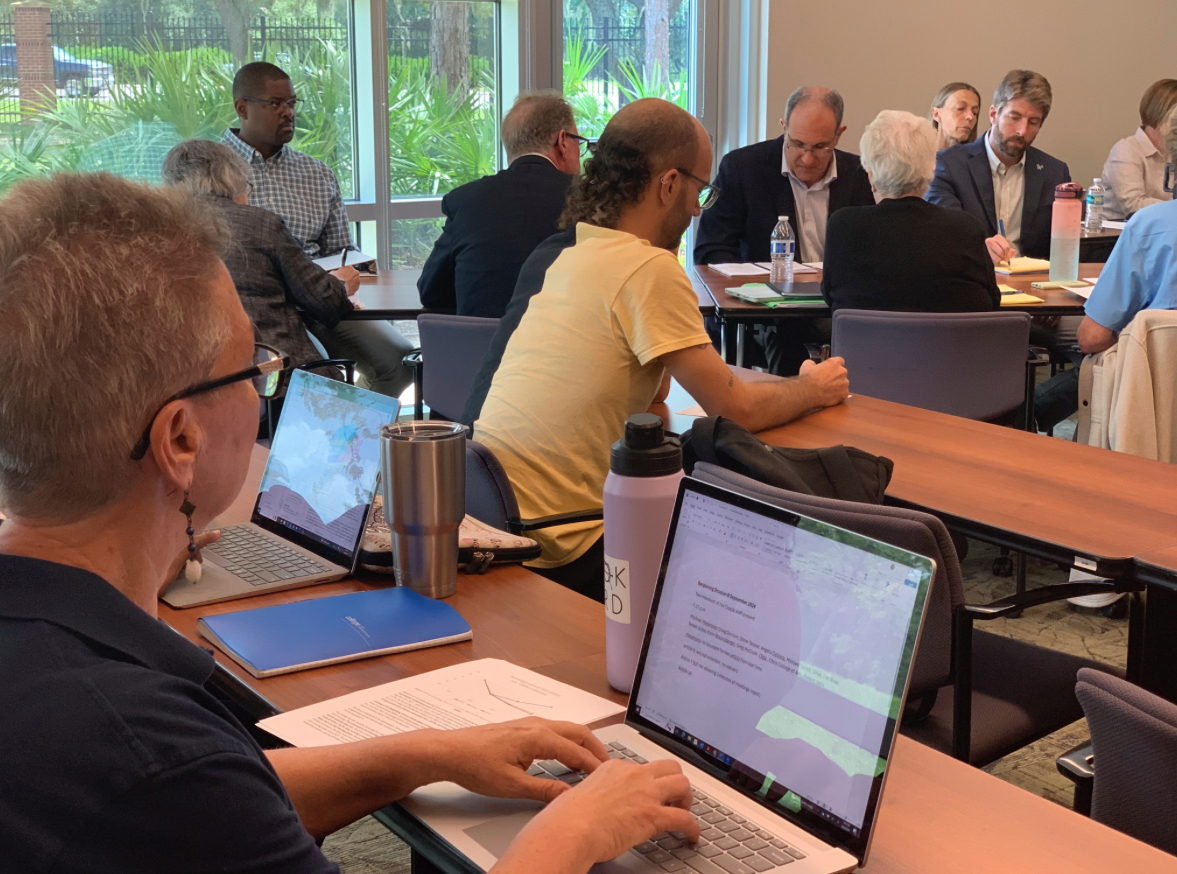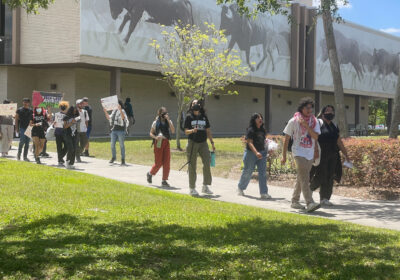USF faculty struggle to secure pay increases as Law is recommended for $282K raise

USF President Rhea Law could get a raise of around $282,000 at Tuesday’s Board of Trustees (BOT) meeting, bringing her total base pay to $825,000.
This is a 30% increase from her original salary of $655,000 and was already recommended to the full board by its Governance committee on Aug. 27 as part of Law’s amended contract with USF.
Meanwhile, USF’s faculty union is struggling to get a 7% to 9% increase for professors’ salaries approved by USF, leaving them to feel undervalued by the university’s administration.
There have been three bargaining sessions between the university and the USF chapter of the United Faculty of Florida (UFF) since May 31. USF has offered a pay increase of 3% at each session, which UFF has rejected.
UFF chapter secretary at USF Gregory McColm said 3% and 30% are “dramatically different tiers.”
“It really is not in the interest of the university to ostentatiously give senior administrators huge raises when at the same time you are giving very low raises to the faculty,” McColm said. “That affects morale.”
In compliance with Florida law, only up to $250,000 of Law’s salary will come from public funds. The rest must be secured with private and foundation sources.
The raise is meant to bring Law’s salary closer to other university presidents in Florida, including UCF President Alexander Cartwright who earns $825,000.
BOT Chair Will Weatherford justified Law’s raise in the Aug. 27 meeting by saying that, while UCF is a great institution, USF has higher aspirations and is “ahead in a lot of fronts.”
Richard Corcoran, president of New College of Florida, also makes more than Law’s current salary with a $699,000 base pay.
“We’re in the [American Association of Universities] and they’re not,” he said. “Luckily for us, we have a president that is not motivated by money, not that any of the presidents are. But I think we need to pay her fairly and make sure that it’s based on data, and I think that’s what we’ve done here.”
Law also received a bonus of $300,000 approved by the BOT in December for her role in bringing USF to the AAU in 2023.
Joining the AAU, a prestigious group of leading research universities in the country, had been a longtime goal of the university. It was included in USF’s 2022-27 strategic plan as well as in the plan for 2013-18.
Under the amended contract, Law could also be eligible for a $412,500 bonus in performance based compensation each year.
Related: USF joins the Association of American Universities – The Oracle
Steve Lang, president of UFF’s USF chapter, called Law’s raise “crazy” and said that USF faculty has been working hard for longer than she has been president.
Law was officially named president back in March 2022 after she began serving as interim leader the year before.
Lang said the faculty were the ones who were putting in the work that got USF AAU status.
“For the people who’ve worked really hard over the last 10 or 15 years to get USF to AAU, the faculty who did the research and got the citations and got the grants and taught the students… they really should get recognized,” he said.
USF previously provided faculty with a bonus of $2,000 and a raise of 3.5% in August 2022, as well as a 2% increase in 2023, according to USF spokesperson Althea Johnson.
“[USF] is committed to bargaining in good faith with United Faculty of Florida and all unions representing USF employees,” she said in a statement to The Oracle.
Lang said it is going to be hard for USF to keep current faculty and hire new faculty if there is not an improvement in salary.
The faculty members of USF are not accepting less than 7-9%, according to the chief negotiator of UFF’s USF chapter Karin Braunsberger, who is also a professor at the Muma College of Business.
Survey data provided to The Oracle by USF’s chapter of UFF shows that 67 out of 136 members of faculty answered that salary is the issue that is most likely to cause them to leave USF.
Jennifer Wolgemuth, associate professor from the College of Education, said she was “disgusted and insulted” by the 3% proposal because of Law’s continuous praise and apparent gratitude to faculty for getting AAU status.
“I’m thinking she’s really thrilled, the university is really thrilled, so when we come to the collective bargaining meeting, they’re going to come with a high raise to reflect the new status and this amazing work that we’ve been told we’re doing for the last few years,” Wolgemuth said. “And they come with 3%, and I was flatly insulted.”
The lowest paid full-time faculty member receives around $50,000, while the highest paid receives around $487,000, according to Braunsberger. That makes the average pay in this group around $93,000.
Braunsberger said it’s time for USF to acknowledge what faculty brings to the table and the value of what they do everyday.
“They’re the ones who are standing in the classroom,” she said. “They’re the ones who are educating our students. They’re the ones who are writing letters of recommendation and working for placement, good placement, of our students in industry.”
The loss of valuable faculty because of low salaries affects not only USF’s reputation as an institution, but the students as well, according to Braunsberger.
“You’re losing some of our brightest faculty members who are not going to be in our classrooms,” Braunsberger said. “They’re going to fantastic schools, and our students are being left behind.”







